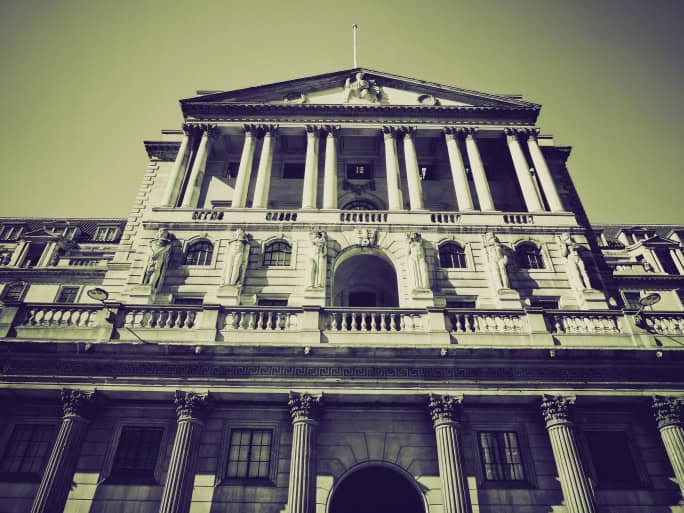 The Bank of England kept interest rates unchanged at 0.75% and lowered its forecast for UK growth for this year and 2020.
The Bank of England kept interest rates unchanged at 0.75% and lowered its forecast for UK growth for this year and 2020.
The BoE now expects the UK economy to grow by just 1.3% in both 2019 and 2020. It had previously forecast growth of 1.5% and 1.6% respectively.
The central bank also said there is a 33% probability of the economy contracting in the first quarter of 2020 if interest rates remain unchanged.
The Bank’s forecasts are based on the assumption that the UK will leave the EU with a deal.
The BoE’s nine-member Monetary Policy Committee (MPC) voted unanimously on keeping interest rates unchanged.
The central bank wants future interest rate rises to be gradual and limited in the event of a Brexit deal.
“..We think a gradual and limited increase in interest rates over the next few years is likely to be needed to keep inflation at our 2% target,” the BoE said in its ‘Visual summary – Inflation Report August 2019’.
Fears of a no-deal Brexit continue to loom
There is heightened uncertainty over whether Britain will leave the EU with a deal or not. If the UK leaves without a deal there would be no transition period for businesses to adjust.
Newly elected Prime Minister Boris Johnson said last week he would deliver Brexit by October 31 “come what may”.
Investment by UK businesses has weakened a lot. We think this is partly because of uncertainty about Brexit. https://t.co/9DQcB5rT0Z #InflationReport pic.twitter.com/GnJ08a5Iwi
— Bank of England (@bankofengland) August 1, 2019
“It is clear that the level of uncertainty is affecting business,” said BoE governor Mark Carney. “It is also clear there has been a substantial shortfall in investment. It is beginning to become clear that the trade response to lower sterling has begun to fade.”
Carney said a no-deal Brexit would make the UK weaker and poorer.
“In the event of no-deal, no-transition Brexit, sterling would likely fall, the risk premiums on UK assets would rise and volatility would spike higher,” Carney said. “Similarly preparations by governments and businesses for no deal are vital to reduce the potentially damaging transition costs to a WTO [World Trade Organisation] relationship with the EU.”
“But those preparations cannot eliminate the fundamental economic adjustments to a new trading arrangement that a no-deal Brexit would entail,” he added.
Carney said if there is a no-deal Brexit it is “highly, highly unlikely” that the Bank will need to take action to stabilise markets.
He added: “No deal as a crystallisation of a bad economic outcome is not preferable to the possibility of a better economic outcome.
“Whatever outcome the country chooses it is always preferable to have a transition to it. That is consistent with the preferences, the aims of this government, and consistent certainly with the aims of businesses up and down the country.”
